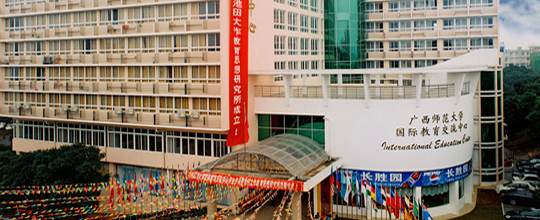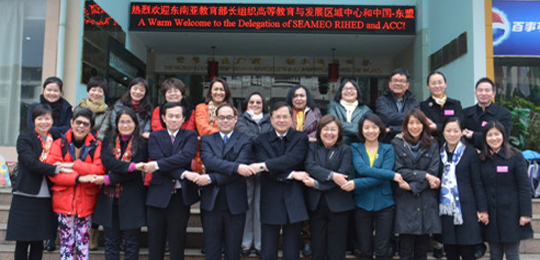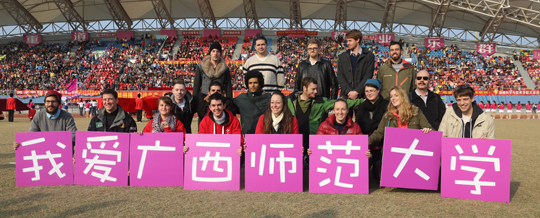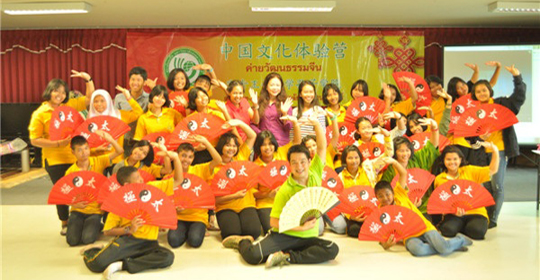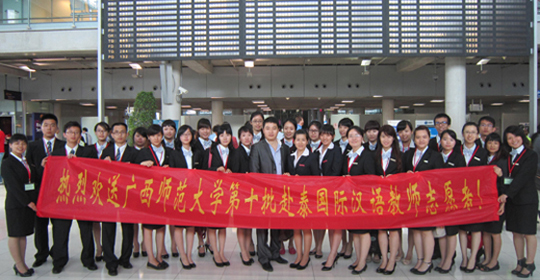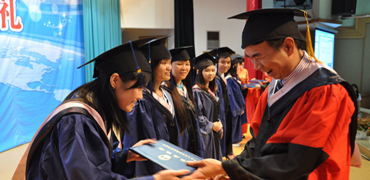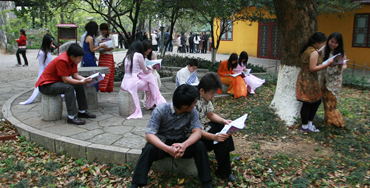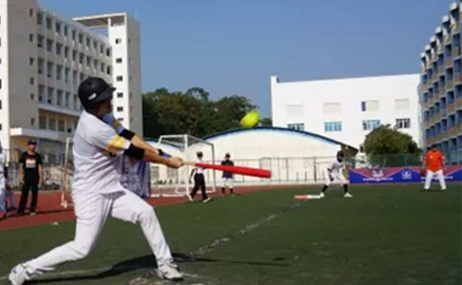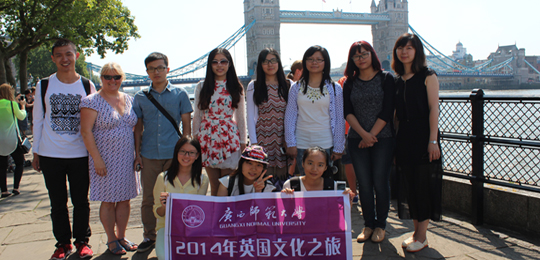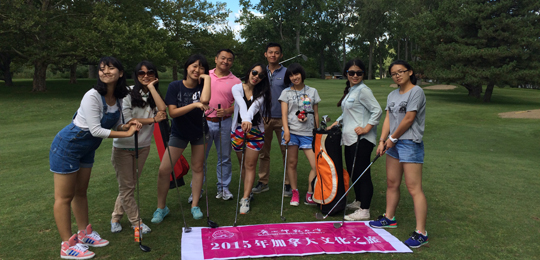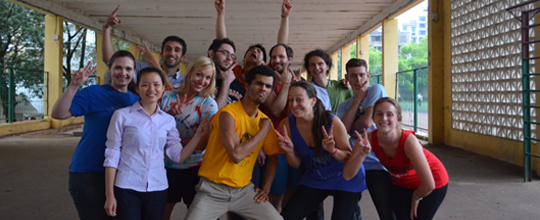Confucius Institute in Vietnam plays larger role in strengthening cultural exchanges
By WANG JIAN inNanchang and YANG HAN in Hong Kong | chinadaily.com.cn | Updated: 2020-11-1013:25
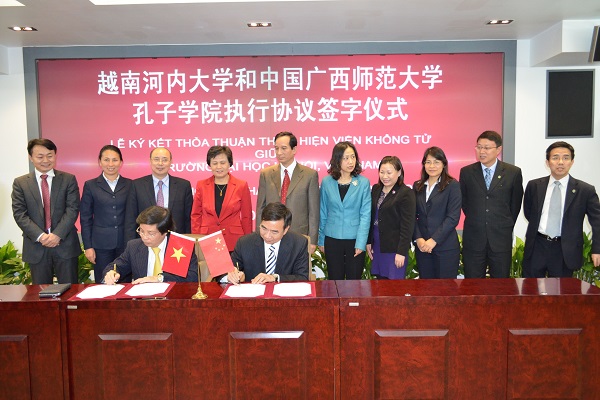
The file photo shows the signing ceremony of animplementation agreement regarding the Confucius Institute between HanoiUniversity in Vietnam and Guangxi Normal university in China on Dec 8, 2013.[Photo provided to China Daily]
DoThanh Van, head of Vietnam's only Confucius Institute, remembers vividly theday the institute was established.
"Since the Confucius Institute at Hanoi University was established six years ago, ithas been committed to promoting Chinese language education and Chinese culture,as well as strengthening the friendship between Vietnam and China, "said Van, who recalls that a tree of friendship was planted at the institute's opening ceremony.
The first, and so far only, Confucius Institute in the country was founded in 2014 under a partnership between the Hanoi University and Guangxi Normal University in China.
By the end of October, the Confucius Institute at Hanoi University had attracted nearly 2,000 students, and more than 35,000 people have participated in avariety of cultural activities it has organized, according to Van.
Around 20,000 people in Vietnam have taken the HSK – the Chinese Proficiency Test –and the Oral Chinese Proficiency Test or HSKK, at the Confucius Institute, said Van, noting the institute has developed in leaps and bounds over the years.
"Today,the institute has become an emblem of Vietnam-China friendship and their cultural exchanges," said Van. "It plays a bridging role in deepeningthe mutual understanding and friendship between people from the twocountries."
This year marks the 70th anniversary of the establishment of diplomatic ties between China and Vietnam. For this special occasion, the institute has held a seriesof events to promote language and cultural exchanges, including the annual language proficiency competition of Hanyu-Qiao or Chinese Bridge, Chinese Culture Experience Week, and a seminar on the cultural exchanges betweenVietnam and China in the past two decades.
Van said these events are helpful in promoting the healthy development of Vietnam-China friendship.
Noting language helps spread knowledge and is an important tool for people to communicate with each other, Van said that by learning the language, Vietnamese people can understand China in a deeper and more comprehensive way. "This is conducive to supporting the exchanges and cooperation in other sectors such as technology and culture," she said.
As Chinese language education helps provide much-needed talent for trade and economic exchanges between China and Vietnam, Van said the increasing interactions and deeper cooperation between the two countries in turn also promote people-to-people exchanges, enhance mutual trust and contribute to the long-term development of bilateral relations.
"With deepened cooperation in trade and economy between China and ASEAN member statesincluding Vietnam, the rising popularity of the Chinese language is affecting all sectors, "said Van.
For example, she said demand among Chinese language learners in Vietnam is shifting from learning the language and culture to vocational education based on the Chinese language.
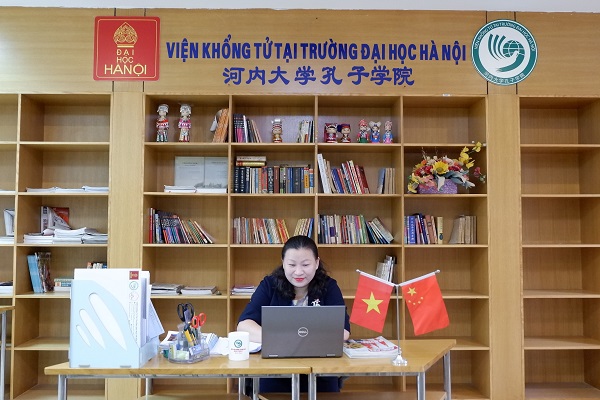
Do Thanh Van, head of the Confucius Institute at HanoiUniversity in Vietnam. [Photo provided to China Daily]
In response, the Confucius Institute at Hanoi University developed a special course that combines Chinese language education with vocational training, which not only provides talent for Chinese companies inVietnam but also helps students find ways to develop careers and support their families.
In the third quarter of this year, trade between China and Vietnam even soared by 23.5 percent, according to Xinhua News Agency.
This is part of an overall trend with the Association of Southeast Asian Nations becoming China's largest trading partner for the first time in the first half of this year. This marks a historic milestone, with ASEAN and China becoming each other's biggest trading partner, according to the Chinese Foreign Ministry.
Vietnam is the chair of ASEAN this year and the 10-member bloc's summit will be held via video link from Nov 12-15 because of the COVID-19 pandemic.
The meetings include the ASEAN summit, the ASEAN-China summit, the 23rd ASEAN-China, Japan and South Korea leaders' meeting, the 15th East Asia Summit, the Regional Comprehensive Economic Partnership (RCEP) summitand the first ASEAN women leaders' summit, a Vietnamese spokesperson said at a press briefing on Nov 5 in Hanoi.
"China has made huge advancements in technology andmoved up quickly in the global innovation rankings, which provide opportunities for international Chinese language education to support regional trade and economic cooperation, the upgrade of China-ASEAN strategic partnership and the high-quality development of the Belt and Road Initiative in Southeast Asia, "said Van.
Noting Vietnam and China are very close neighbors connected by mountains and rivers, Van said she is brimming with hope for the two countries' future cooperation in culture and education.
"Vietnam and China are expected to be one of the fewcountries that are going to post positive economic growth this year. In thepost-pandemic era, the trade and economic exchanges between China and ASEAN countries will be more frequent, leading to the rapid growth in the demand for Chinese language talent in the region, "said Van.
Seeing huge demand for skilled talent in Vietnam, Van said the institute will put more focus on the hybrid model of Chinese language education and vocational training. She said she hopes to enhance cooperation with companies to provide internships or job opportunities for students while developing suitable language courses that will also meet the requirement for professional skills training in Vietnam.
"We will also assist the Chinese Department of HanoiUniversity and other educational organizations to roll out joint cultivation programs … which will allow the Vietnamese students to continue their studies in China and work in Chinese companies as interns after studying Chinese for one or two years in Vietnam," said Van, who hopes to provide more opportunities in career development for Vietnamese students.
Looking forward, she said the institute will continue toimprove its education quality and bring more Vietnamese students to study inChina.
"We will continue to nurture talent equipped with a global vision and intercultural communication skills, playing our part in meeting the demand for international talent in China, Vietnam and even across the whole ASEAN region," said Van.
https://www.chinadaily.com.cn/a/202011/10/WS5faa2452a31024ad0ba932df.html


